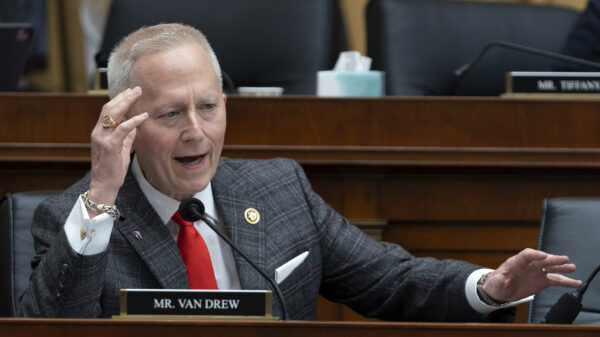Child care workers in Michigan are facing significant challenges as they strive to provide quality education and care for the state’s youngest residents. Carla Brown, a dedicated toddler teacher at Above and Beyond Learning Childcare Center in Detroit, exemplifies the struggles of this workforce. Despite her crucial role in fostering early childhood development, she earns only $15 an hour, a wage that many argue does not reflect the importance of her work.
The situation has prompted early education experts and providers to voice concerns about the state’s funding priorities. They argue that while substantial investments have been made toward pre-K programs for four-year-olds, support for infants and toddlers—ages zero to three—has been largely overlooked.
Brown, who has dedicated her life to caring for children since she was a child herself, begins her day at 7:30 a.m., preparing engaging activities for her classroom of toddlers. On a recent morning, she set out materials for finger painting, shape recognition, and phonics games, all designed to stimulate cognitive development. This hands-on work is critical, as research indicates that a child’s brain grows to 80% of its adult size by age three, forming millions of neural connections essential for future learning.
Despite her commitment and the pivotal role she plays, Brown’s salary is only slightly above the state median for child care workers, which stands at $13.88 per hour. Many in her profession, including approximately 40% of Michigan’s child care workforce, rely on Medicaid, lacking access to employer-sponsored health care or retirement benefits.
A living wage for a single adult in Wayne County is estimated to be between $20 and $55 per hour, depending on family size. Yet, the majority of child care funding has been directed toward preschool programs, with only around $70 million allocated for child care services for children under three, compared to approximately $655 million for preschool education.
Funding Challenges and Workforce Struggles
The disparity in funding is exemplified by the experiences of directors like Nina Hodge at Above and Beyond Learning Childcare Center. Hodge is able to pay her lead teachers in the state-funded pre-K program, known as the Great Start for Readiness Program (GSRP), a minimum of $30 per hour due to the financial support provided by the state. In contrast, she struggles to offer a living wage to her non-GSRP employees, like Brown, because of the low reimbursement rates she receives from the state for infant and toddler care.
Hodge has expressed disappointment that recent budget proposals from Governor Gretchen Whitmer do not include increases in child care subsidy reimbursement rates. This lack of financial support perpetuates a cycle of low compensation, leading to high turnover rates among child care staff. Brown, who has worked at the center for four years, is currently the longest-serving employee.
The low wages and high demands of the job are pushing many educators to reconsider their careers. Brown has contemplated leaving the profession for a higher-paying job, yet her passion for working with children keeps her committed.
Advocacy for Change
Advocates for early childhood education are calling for increased state investment in child care for infants and toddlers. According to a report from the Michigan League for Public Policy, the state currently spends only $210 on the care and education of young children for every $1,000 spent on school-age children. This funding imbalance raises questions about the long-term implications for Michigan’s youngest residents.
Tyler Huntey, president of the Michigan Child Care Provider Collective, highlights the political motivations behind the funding priorities. He notes that universal pre-K was a politically favorable topic, allowing for easier implementation and support from school districts. In contrast, the necessity of funding infant and toddler care, while crucial, is more complex and less understood by lawmakers.
The need for additional funding is clear. It has been estimated that it would cost approximately $120 million annually to adequately support the over 8,000 infants and toddlers currently relying on the state’s child care subsidy. This figure rises to $840 million to provide sufficient funding for all qualified children, reflecting the urgent need for increased political will to support this vulnerable age group.
As Michigan continues to grapple with these challenges, workers like Carla Brown remain dedicated to nurturing the minds of young children, despite the obstacles they face. Their commitment underscores the importance of advocacy for fair wages and support in the early education sector.





































































